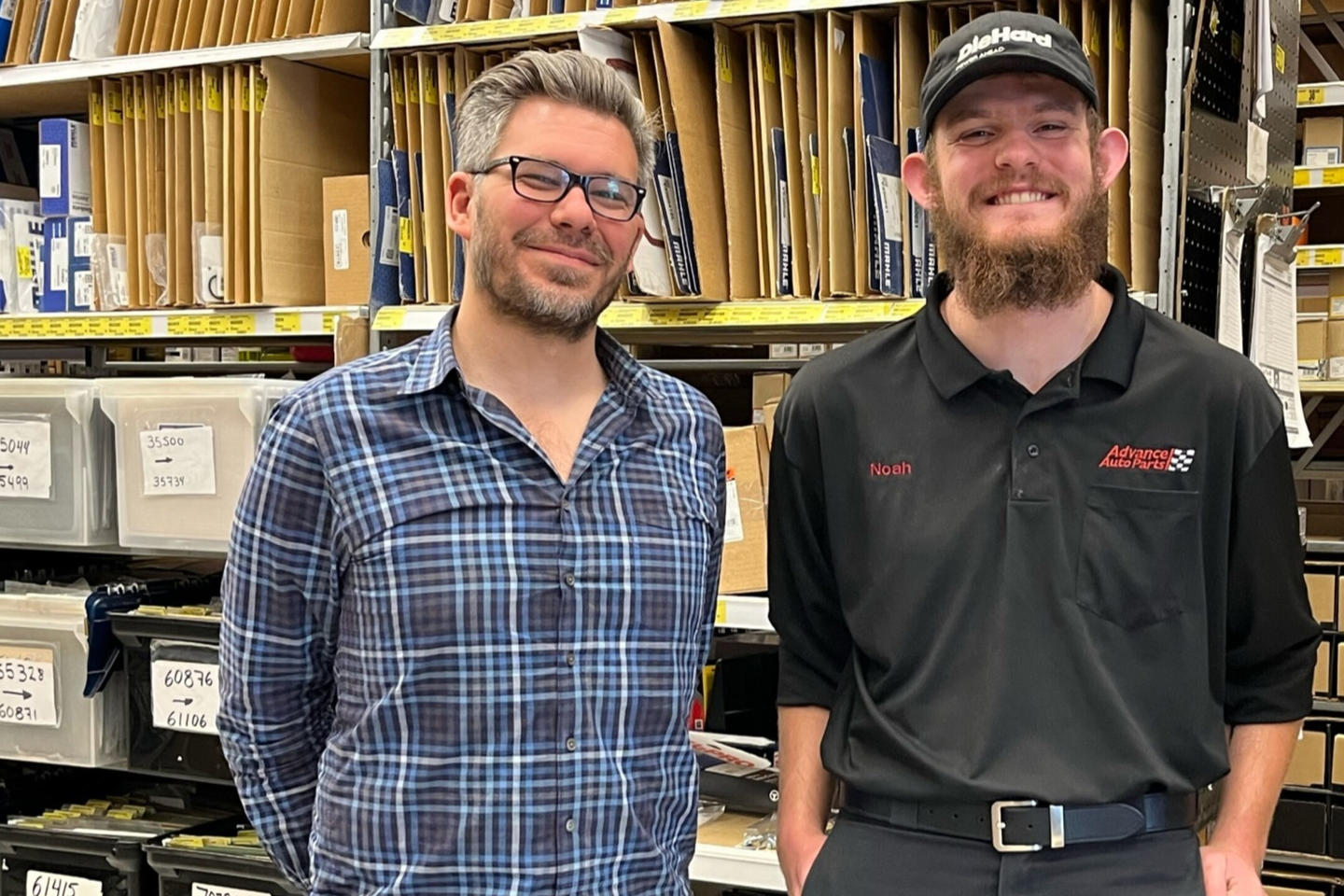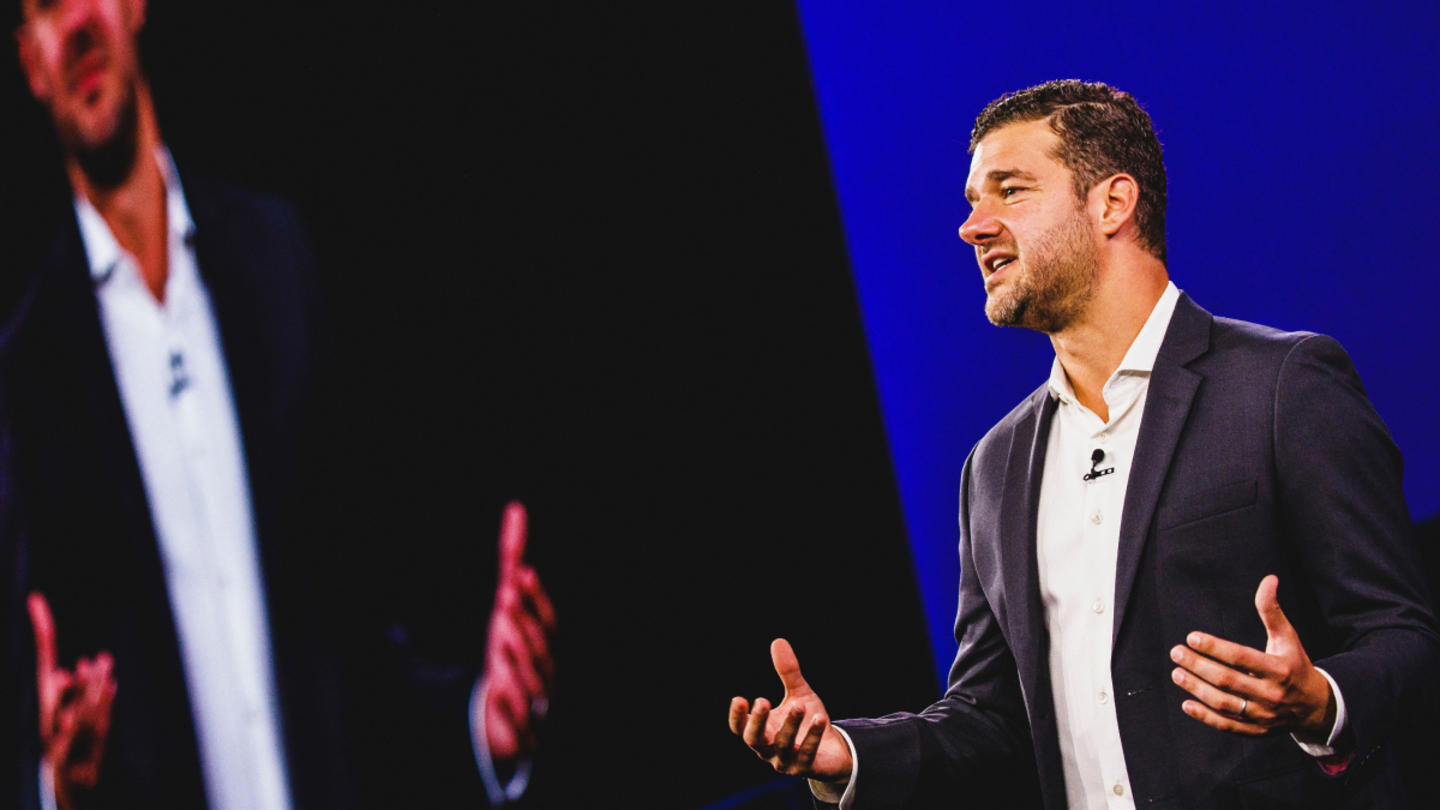Ninety percent of neurodiverse individuals are unemployed, representing the highest rate of unemployment out of any group in America. And yet, many neurodiverse individuals are capable of being productive and self-sufficient members of society.
Which is exactly what Danny Combs is making sure happens.
Despite growing up in a household of tradesmen, Combs followed his passion and became a working musician in Nashville. His life took a turn when his young son, Dylan, was diagnosed with autism. He quickly recognized the opportunity gap neurodiverse individuals face—and decided to do something about it.
Combs founded the nonprofit organization Teaching the Autism Community Trades (TACT) in 2016 in order to address this startling gap in employment opportunities.
"The inspiration for TACT came after realizing that my son's future relies on having an independent, self-sufficient life that he chooses," Combs said from TACT's Denver headquarters. "Just looking at what the landscape looks like for him, it became unacceptable. I didn't want him to be dependent, and I didn't want him to feel like his strengths weren't recognized."
TACT is offering self-sufficiency to neurodiverse individuals
Combs initially launched TACT by teaching neurodiverse individuals woodworking and mechanical skills out of the back of his '58 Chevy. He wasn't sure how to launch his program; he just knew a change needed to happen. To this day, no other organization specifically focuses on training and placing neurodiverse individuals in the workforce.
And so Combs persevered. Knowing well the stigmas unfairly associated with neurodivergence, Combs wants everyone who goes through his program to leave with a sense of dignity. TACT is helping neurodivergent individuals self-actualize and achieve their goals in their own way—not necessarily by the rules that the rest of society places on them.
"Looking at what the landscape looks like for my son, it just became unacceptable. I didn't want him to be dependent, and I didn't want him to feel like his strengths weren't recognized."
And the results are proving the strength of TACT's programs. To date, TACT has a job placement rate of 83.3%, while the national average of job placement programs is 10%. TACT graduates earn an average wage of $19.86/hour, which is 68% higher than other autism training programs. The hiring companies know the power of TACT, given their 98.9% customer satisfaction rating.
All this helps explain TACT's phenomenal growth. In 2022, Combs moved his growing team into an 18,474-square-foot warehouse in Denver—over triple the size of the organization's previous space. Having watched hundreds of students pass through his program, he's excited to expand on TACT's offerings, which include auto mechanics, carpentry, electrical, welding, and STEM trades, including software, hardware, and networking instruction in preparation for a career in the Information Technology (IT) field.
"Roughly 5.4 million adults have autism, ADHD, or some sort of neurodivergence," Combs says. "And there's still so many policies that hinder individuals from entering the workforce and developing that independence to the level of being self-sufficient. TACT is giving neurodiverse individuals the option to choose a life they want for themselves and have an equitable future instead of being dependent on others."
Honoring the unique skills of neurodiversity is a win-win
Besides expanding into a bigger space, TACT is partnering with major companies in order to place graduates. The first is Toyota. TACT will specifically train students to work on electric vehicles.
"All the dealers we talk to are asking about EVs, so we're headed in that direction, as well as into more HVAC-type stuff as people start embracing more efficient homes," Combs says. "TACT students will have the potential to be Toyota-certified mechanics, stepping right into jobs working for Toyota dealerships."
Combs believes the unique skill sets that neurodiverse individuals offer make them perfect additions for many companies. According to him,
- Neurodiverse individuals have up to 140% more on-task time, making them the most on-task of any demographic
- Neurodiverse individuals have the highest job retention rate of any demographic
- TACT's students are out-of-the-box thinkers who bring new ideas and creativity to the workforce
One of Combs's first students serves as the perfect example. She was hired by Coors, one of America's largest beer manufacturers. On her very first day, she pointed out an operational flaw that resulted in the company changing that plant's manufacturing procedures.
"Coors said to us, 'she pointed out something we've missed all these years. I don't know how we missed it, but she saw it and recognized it and advocated for it,'" Combs says. "A lot of the time, neurotypicals will mask and blend in as they don't want to rock the boat. Our kids are used to going against the grain. We try to develop a culture where they can be themselves and really just shine."
While his autistic son Dylan inspired Combs to start TACT, the organization trains a range of neurodiverse individuals, including people with ADHD and dyslexia. While neurodiverse individuals face many societal challenges, Combs hopes to help them live fulfilling and self-sufficient lives. Given TACT's expansion, corporate partnerships, and growing body of students, he's succeeding.
TACT is supported by Stand Together Foundation, which partners with the nation’s most transformative nonprofits to break the cycle of poverty.
Sign up for Stand Together’s Rethinking Work & Learning newsletter to get the latest stories, ideas, and trends on the future of employment.




